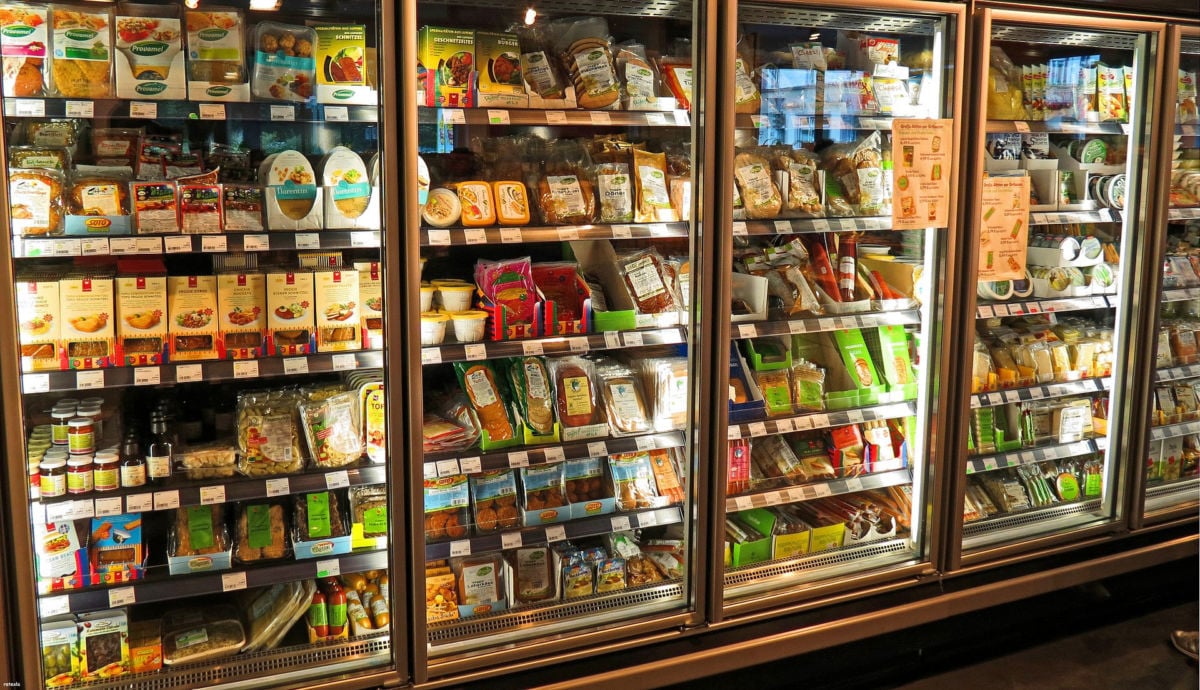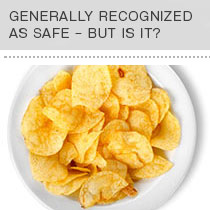There Are 2,000 Untested Chemicals In Packaged Food--And It's Legal
'There Are 2,000 Untested Chemicals In Packaged Food--And It's Legal,' Melissa Kravitz Hoeffner, Truthout, Nov. 7, 2019.
A major but largely glossed over report by the Environmental Working Group (EWG), an environmental and public health nonprofit based in Washington, D.C., shows that thousands of untested chemicals (an estimated 2,000, to be exact) are found in conventional packaged foods purchasable in U.S. supermarkets. And yes, all of them are legal.
The extensive collection of permissible additives includes several known or suspected carcinogens, such as synthetic sodium nitrate, found in processed meats and considered probably carcinogenic by the World Health Organization, and butylated hydroxyanisole, also known as BHA, a chemical listed as a cancer-causing chemical by the state of California and found in commonplace items like frozen pepperoni pizza. Other unappealing chemicals are commonly found in our food packaging, such as polypropylene, sulfuric acid and bisphenol A — all of which can have impacts on human health and the environment.
How much should consumers panic before their next supermarket trip? “It really depends on what level of risk consumers are comfortable with,” says Dawn Undurraga, a nutritionist at EWG and co-author of the study. “The more we learn about what is in conventional foods, the more evidence for concern we accumulate.” Independent laboratory tests commissioned by EWG, for example, found glyphosate, a probable carcinogen, in every sample of conventional oats tested.

The fact that dangerous chemicals are legal for use in our food is a major public health concern that goes largely unrecognized by the U.S. government. “Unfortunately, our current policy on food additives was written in 1958 and has been completely co-opted by food and chemical companies,” Undurraga says. “Additives that are deemed ‘Generally Recognized as Safe,’ or GRAS, by a food or chemical company or trade association are exempt from the food additive petition process where the U.S. Food and Drug Administration (FDA) reviews the safety of the additive.”
Originally, this GRAS exemption was created to cover ingredients widely known to be safe, like vinegar, but with advancements in food science, the provision has been applied to thousands of chemicals. As a result, questionable substances have been allowed into a host of conventional foods. In 2017, EWG joined several other public health groups to file a lawsuit against the FDA in an effort to eliminate the GRAS loophole.
“Rather than close the loophole, the FDA has instead allowed companies to voluntarily notify the agency about food chemicals and to allow companies to summarize the industry science supporting their conclusions,” reads the EWG study, elucidating that many scientists who conduct these reviews have been paid by the industry. Plus, the FDA does not subsequently review underlying biological and chemical data, leaving consumers to literally do the dirty work. The FDA did not respond to Truthout’s request for comment.
“Consumers shouldn’t have to be toxicologists to be able to grab something at the grocery store that doesn’t contain questionable or dangerous ingredients,” Undurraga says. Even so, toxicology literacy won’t help in the frozen food aisle. According to Undurraga, there are absolutely no defining signs on food packaging to indicate that any of the 2,000 synthetic chemicals approved for use in food are present in that specific item.
In fact, the only way to minimize exposure to these chemicals is to purchase certified organic packaged foods and look at EWG’s Food Scores, which measure nutrition, ingredient and processing concerns in more than 80,000 common foods, from frozen vegetables and baby food to packaged nuts, berries and grains across hundreds of popular brands; and EWG’s Dirty Dozen List of Food Additives, which ranks the worst food additives common in U.S. supermarket food and where you’ll likely encounter them, like potassium bromate in packaged loaves of bread and propylparaben in packaged tortillas and muffins.
If additives don’t have you worried enough about what we’re legally permitted to consume, know that pesticides, found to be carcinogenic and also severely damaging to the environment, are still more than prevalent alongside the packaged food chemicals at your grocery store...
https://truthout.org/articles/there-are-2000-untested-chemicals-in-packaged-foods-and-its-legal/
hlthe2b
(102,456 posts)I have gone back to glass for nearly all my storage and microwave dishes. They are heavier, for sure, but good quality lasts forever.
Not sure what else one can do, but at least if a product is not heated in plastic, leaching of chemicals is less of an issue.
appalachiablue
(41,184 posts)possible. There are so many toxins and plastics around-- it has to change.
Never heat any food items with plastic packaging or containers!!
appalachiablue
(41,184 posts)- EWG’s Dirty Dozen Guide to Food Additives: Food should be good for you. But some isn’t. More than 10,000 additives* are allowed in food. Some are direct additives that are deliberately formulated into processed food. Others are indirect additives that get into food during processing, storage and packaging. How do you know which ones to avoid because they raise concerns and have been linked to serious health problems, including endocrine disruption and cancer?
EWG’s “Dirty Dozen Guide to Food Additives” helps you figure it all out by highlighting some of the worst failures of the regulatory system. The guide covers ingredients associated with serious health concerns, additives banned or restricted in other countries and other substances that shouldn’t be in food. And it underscores the need for better government oversight of our food system.
Here’s a list of 12 additives that EWG calls the “Dirty Dozen.” We’ll tell you why, which foods contain them and what you can do to avoid them. (A good place to start is by looking up your food in EWG’s Food Scores database).
Read more, Nitrites and nitrates. Read more, Potassium bromate

fierywoman
(7,699 posts)appalachiablue
(41,184 posts)with the 'certified organic' label.
The term 'natural' is pretty much useless marketing, used to describe half-way wholesome food with less additives. Even arsenic is 'natural' since it's found in soil...
----------------
The best book I ever read about the reality of the American fast food industry, 'FAST FOOD NATION,' excellent.
> Fast Food Nation: The Dark Side of the All-American Meal is a 2001 book written by investigative journalist Eric Schlosser that examines the local and global influence of the United States fast food industry. First serialized by Rolling Stone in 1999, the book has drawn comparisons to Upton Sinclair's 1906 muckraking novel The Jungle. The book was adapted into a 2006 film of the same name, directed by Richard Linklater.
Rolling Stone asked Schlosser to write an article looking at America through fast food in 1997 after reading his article on migrants in Atlantic Monthly. He then spent nearly three years researching the fast-food industry, from the slaughterhouses and packing plants that turn out the burgers to the minimum-wage workers who cook them to the television commercials that entice children to eat them with the lure of cheap toys and colorful playgrounds. The experience enraged and appalled him. https://en.wikipedia.org/wiki/Fast_Food_Nation
